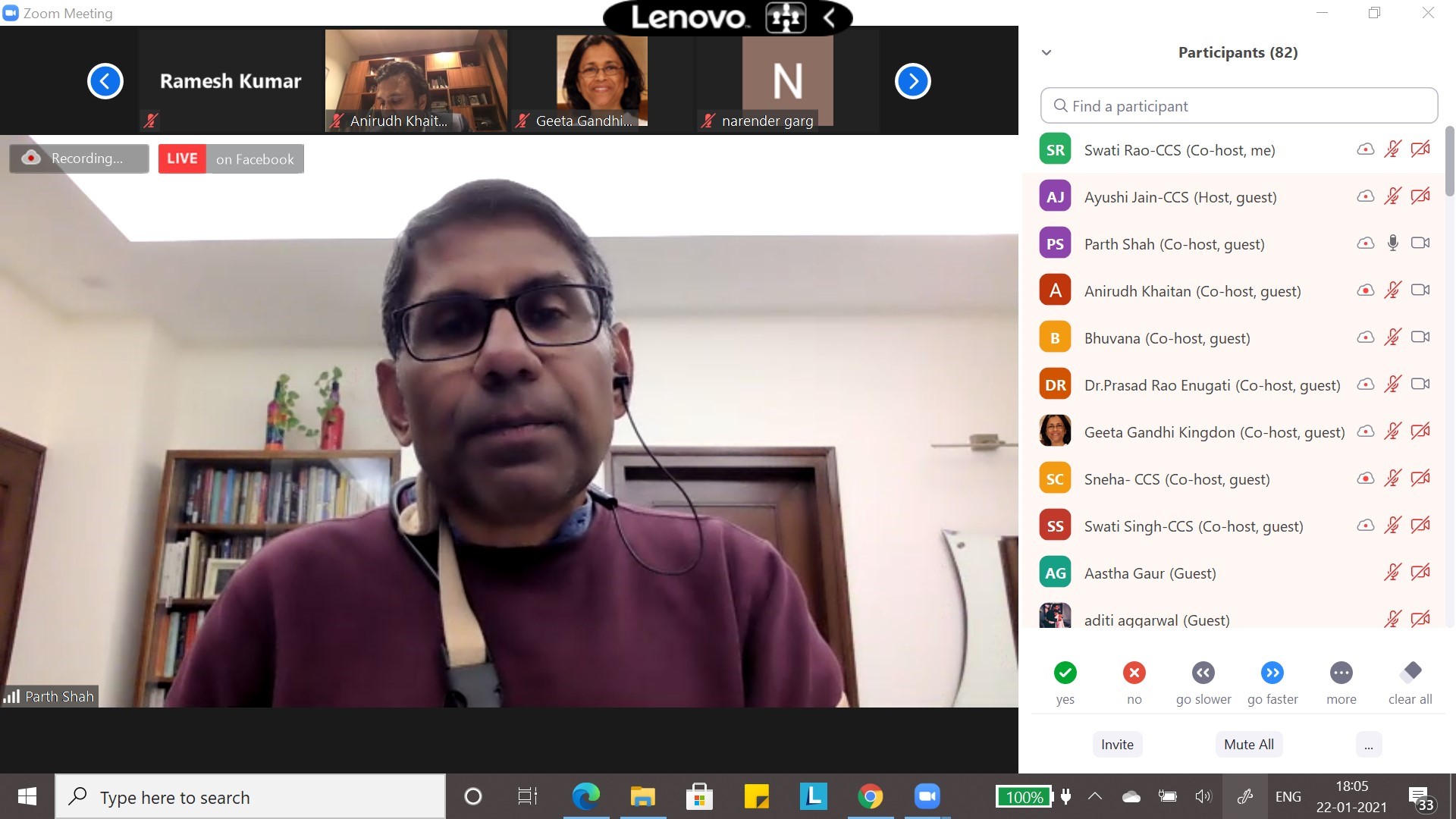Policy makers and experts discussed ‘Quality education for a post pandemic world’ during the two days conference
New Delhi: The First Director-General of School Education of Uttar Pradesh Vijay Kiran Anand said that the government will always have a role to play and public education will always be one of the mainstays to ensure equality of opportunity and democratic principles, but at the same time private schools should be present in the system to improve educational outcomes. He was delivering closing remarks during the 11th School Choice National Conference (SCNC) on Education for new realities: Quality education for a post pandemic world. SCNC is a flagship annual conference of the leading think tank Centre for Civil Society.
Addressing the audience on the final day of the two days conference Vijay Kiran Anand said that there are a lot of areas of collaboration between the government and private schools like technology, classroom practices and community engagement. Top level national and international academics, policy makers, eminent speakers, education experts and advisors as well as a very good representation of delegates comprising development workers, corporates, academicians and school leaders, government officials, civil society, social activists, youth and the media also participated in the conference.
Speaking at the Keynote Address of the Conference, Professor Geeta Gandhi Kingdon, Professor at University College London and President of City Montessori School, Lucknow emphasised on the importance of governance of school education in determining educational outcomes. Prof Gandhi Kingdon recommended that successful implementation of provisions of the NEP will require government will, consistent effort and tackling teacher resistance.
The first session on Envisaging regulations for new realities brought together a powerful panel comprising Anirudh Khaitan, Vice Chairman of Khaitan Public School and Treasurer at FICCI ARISE, Dr E Prasad Rao, Quality Advisor at NISA and Founder of Paramita Schools and Dr. Parth J Shah, President, Centre for Civil Society. The session explored the need to re-engineer our regulatory processes in a manner that not only ensures a safe learning environment but also improves learning outcomes by addressing the role of regulatory agencies in a post-COVID world.
The definition of a school has undergone significant changes this year. The second session on Moving towards 21st century schooling reflected on the need for re-aligning the education system to focus on funding students, and not schools. The panel, consisting of Vidhi Jain, Co-founder of Shikshantar, Neal McCluskey, Director at Center for Educational Freedom, CATO Institute and Vishnu Karthik, CEO, Xperiential Learning Systems (The Heritage Schools) shared their ideas for 21st century schooling that puts the needs of children above all.
The third session on Ensuring access and equity in education focused on how to budget private schools can be supported to to access bridge-financing to tide over disasters such as the current pandemic. The session saw Manish Sabharwal , Chairman of TeamLease Services Ltd, Ashok Thakur , Founder of Muni International School, Ekta Sodha , Vice President of Quality Control, NISA and Tanaya Kilara , Head, Education Services at Varthana as panellists. All speakers shared their experiences adapting their schools and practises to the changing realities towards addressing the quality gap in budget private schools.
The Conference sessions focused on addressing the question of how governments can build an effective institutional framework towards the goal of quality education for all, in a post-COVID world.

